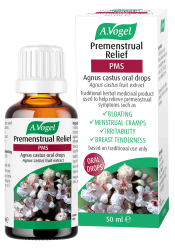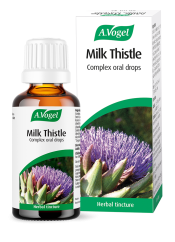Alcohol and the menstrual cycle
Are boozy nights out affecting your period? Quite possibly. Consuming alcohol can affect a number of the systems in your body: from your brain to your ovaries! In terms of your menstrual cycle, if you feel something isn’t quite right (this could be anything from having irregular cycles to heightened symptoms) your alcohol intake could be having a part to play. Let’s discuss what’s potentially going on.
Upsetting your sex hormones
Even moderate alcohol consumption could potentially affect a women’s menstrual cycle. The exact mechanisms for this aren’t well understood, although an excessive intake of alcohol is somehow thought to impact your levels of oestrogen, testosterone and luteinising hormone.
Oestrogen and luteinising hormones are of particular importance as these are responsible for initiating ovulation. If the levels of these hormones are affected in some way, it is possible that issues with fertility can become apparent. Your monthly menstrual period is often an indicator that you are ovulating – if you have irregular or missed periods it suggests that something may not be quite right.
Release of histamine
Histamine is a chemical released by your immune system which has a number of important functions. However, in excess it can be problematic. There are a number of histamine-producing foods and drinks, alcohol being one of them.
Histamine may influence the ovaries causing them to secrete oestrogen. Specific fluctuations in oestrogen throughout the month are required in order to initiate ovulation; however, if oestrogen levels remain high, ovulation could potentially be affected. This is actually how many hormonal contraceptives work in order to prevent pregnancy!
For a more regular cycle, try to limit alcohol and other histamine-rich or histamine-producing foods including cured meats, dairy products and foods containing artificial preservatives.
It puts stress on your liver
Alcohol is processed by your liver and in extreme amounts it can cause permanent damage to this important organ. ‘Important’ being the word! The liver has over 500 functions crucial to life. One of which is breaking down excess hormones. If your liver is under pressure as a result of your diet and lifestyle habits, this function could become impaired and hormone levels could become increased, for example oestrogen.
Elevated levels of oestrogen can cause a number of problems. Heavy periods with shorter cycles are common but problems with infertility or conditions such as fibroids could also develop if your hormone levels aren’t being properly controlled.
You become dehydrated
Alcohol inhibits the release of a hormone called anti-diuretic hormone (ADH). As a result of this, the kidneys stop reabsorbing water as they normally would, so you produce more urine and start to become dehydrated. As you become dehydrated your blood thickens and this can have a number of affects if you are on your period at the time.
Your period may cease temporarily or become very light, although other symptoms may heighten such as stomach cramp or headaches. The by-products of alcohol being broken down by the liver can also increase inflammation. In combination with pro-inflammatory mediators called prostaglandins released from the womb during your period, and being dehydrated, you can end up feeling quite poorly.
Your sleep is affected
You might think that you get a great sleep after a night on the town, you just conk out, right? Well yes, but did you know that alcohol affects the quality, rather than quantity of sleep (although it could actually affect both).
Alcohol affects your sleep cycle, meaning you fall straight into a deep sleep and miss a phase called Rapid Eye Movement (REM) sleep. This phase is really important and we should enter it several nights throughout the course of the night, it’s when our brain processes and organises the thoughts we’ve accumulated throughout the day. So, perhaps missing out on this important sleep cycle phase is part of the reason you feel so fuzzy-headed the morning after!
It affects your blood sugar levels
Alcohol can cause chaos with your blood sugar levels too. Many alcoholic beverages naturally contain carbohydrates and sugars anyway; however, nowadays there are a number of alcopops and fruity versions of drinks which have bundles of added sugar on top of this.
So, as a result of this, initially, many alcoholic drinks can cause a spike in your blood glucose levels. However, this is short-lived and it’s soon followed by an increase in insulin secretion which clears the blood sugar and causes a subsequent drop in your blood sugar levels. Low blood sugar can be problematic for a number of reasons. Low blood sugar can put you at risk of food cravings – alcohol consumption and overeating often go hand in hand. Headaches, nausea and feeling lightheaded are all part of the package too – do you really need this on top of your regular period symptoms?
Plus, alcohol strips many of your supplies of water soluble vitamins and minerals such as B vitamins, vitamin C and magnesium – regular trips to the bathroom means you lose many of these through all that extra urine getting churned out, so that won’t help your symptoms either, plus you need to take the time to replenish them – and junk food the next day won’t be the way to do it! So really, all of these extra calories on a night out might not be worth it – you could easily risk piling on the pounds if it becomes a regular occurrence!
Alcohol is a depressant
OK, so it might not always feel like it when you’re loving life after your first drink or two, but how about later in the night or the next day? I’m sure many of you can admit you end up feeling a bit teary-eyed and over-emotional, but why? Alcohol is a depressant: it alters your brain chemistry and can affect your actions, thoughts and feelings. Not to mention your relationships if you act differently or start voicing these newly found, often irrational, thoughts and feelings!
As you know, in the lead up to your period many women suffer from mood swings and can feel overly emotional, angry or down in the dumps anyway, so perhaps adding alcohol into the mix isn’t advisable. Also, watch out, because feeling fed up or irritated may mean you are more likely to reach for a drink in the first place, or drink more than normal – a combination of low oestrogen and alcohol will more than likely make everything feel and seem worse, believe me!
So, by now I might just have been able to convince you that alcohol and periods aren’t generally a great combination. However, this isn’t to say you should never go to a party or enjoy some wine over dinner around your time of the month – everything in moderation after all and this is often a great time to socialise with friends to help support your mood.
However, it is just worthwhile knowing what’s actually going on when you consume alcohol, especially if you suspect your alcohol consumption is making some of your symptoms worse.
Next time you have the option to have a drink, curling up with a warm mug of something alcohol-free, perhaps even having a pamper night instead, might just seem that little bit more appealing. Your ovaries will thank you!





 Looking for our products in a store near you?
Looking for our products in a store near you?


